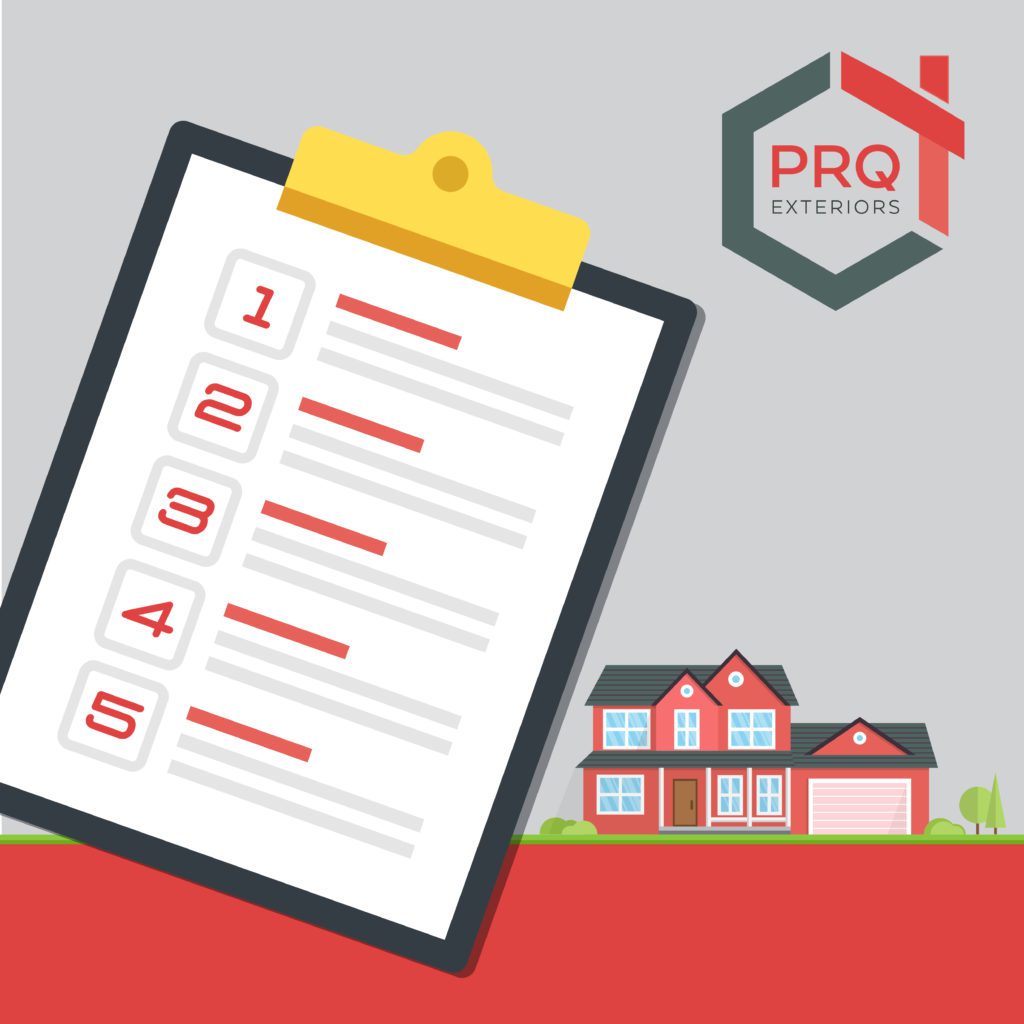The Most Important Aspects Of Your Home Insurance Policy
Shopping for a new homeowners insurance policy can be a daunting task. Your home is your most valuable asset and you want to protect it as such. With hundreds of options available, how do you know which policy is the best fit for you? While there is absolutely no one size fits all policy, there are a few factors that everyone should take into consideration.
Below the PRQ Exteriors team has outlined the 5 most important things to look for in a homeowners insurance policy.
1. Actual Cash Value vs. Replacement Cost Value Policies
Actual cash value (ACV) is the actual dollar amount that your home is worth today, taking age and depreciation into consideration. Replacement cost value (RCV) is the dollar amount that it would take to replace or repair your home to new, not factoring in age or depreciation. RCV based policies are superior to ACV based policies. If you were to sustain severe roof damage in a storm, with a RCV based policy you would not need to worry about how old your roof is when the damage occurs. Your insurance company would cover the cost to replace the damaged roof minus your deductible, regardless of age or depreciation.
2. Does your policy change after a set amount of time?
A sneaky, and often overlooked, clause in insurance policies is policy changes from an RCV based policy to an ACV based policy after a specified amount of time. This is something that is often missed by buyers and can lead to high costs for a homeowner later down the line. Make sure to read through your insurance policy carefully so you know how your coverage changes with time.
3. What is percentage is your deductible?
In the event of damage to your home, do you know what your deductible (the amount that you will have to pay out of pocket) actually is? Insurance policies are typically written one of two ways. Option one is a high deductible, low premium plan, meaning you pay less monthly, but more in the event of damage. Option two is a low deductible, high premium plan, meaning you pay more monthly, but less in the event of damage.
4. Are there hidden clauses in your deductible?
Your homeowners insurance policy may not be the most exciting nighttime reading, but reading over your policy completely is the only way to understand exactly how your coverage works. Insurance companies often slip hidden clauses into the fine print of policies. One of the most common types of hidden clauses is a hidden deductible. Some policies are written so that your deductible may change based on the way the damage to your home was sustained, such as in the case of a natural disaster. Your standard deductible might be $1,000, but if your home was damaged in a tornado that deductible might soar to $10,000. Be sure to read through all documentation and ensure you have an understanding of how your coverage works.
5. What does a higher premium get you?
When shopping for homeowners insurance, it can be tempting to purchase the least expensive quote you receive, but it is important to remember that the cheapest option may not be the best option. Carefully look at the coverage and benefits you receive with each quote and consider the pros and cons. Higher premiums typically come with better coverage and additional benefits that (if disaster were to strike) are well worth the price.

As you continue to shop for homeowners insurance, the PRQ Exteriors team recommends that you reach out to a licensed insurance agent with any questions that you have. They’ll be able to help guide you through the process, ensuring you end up with the best policy for your home.
Denver, CO
Call or Text: (720)-696-9473
Call or Text: (303) 214-0703
13301 W. 43rd Drive Unit 4, Golden, CO 80403
Kansas City
Call or Text: (816) 375-6014
© Copyright 2023 PRQ Exteriors. All rights reserved. Privacy Policy & Terms of Service


